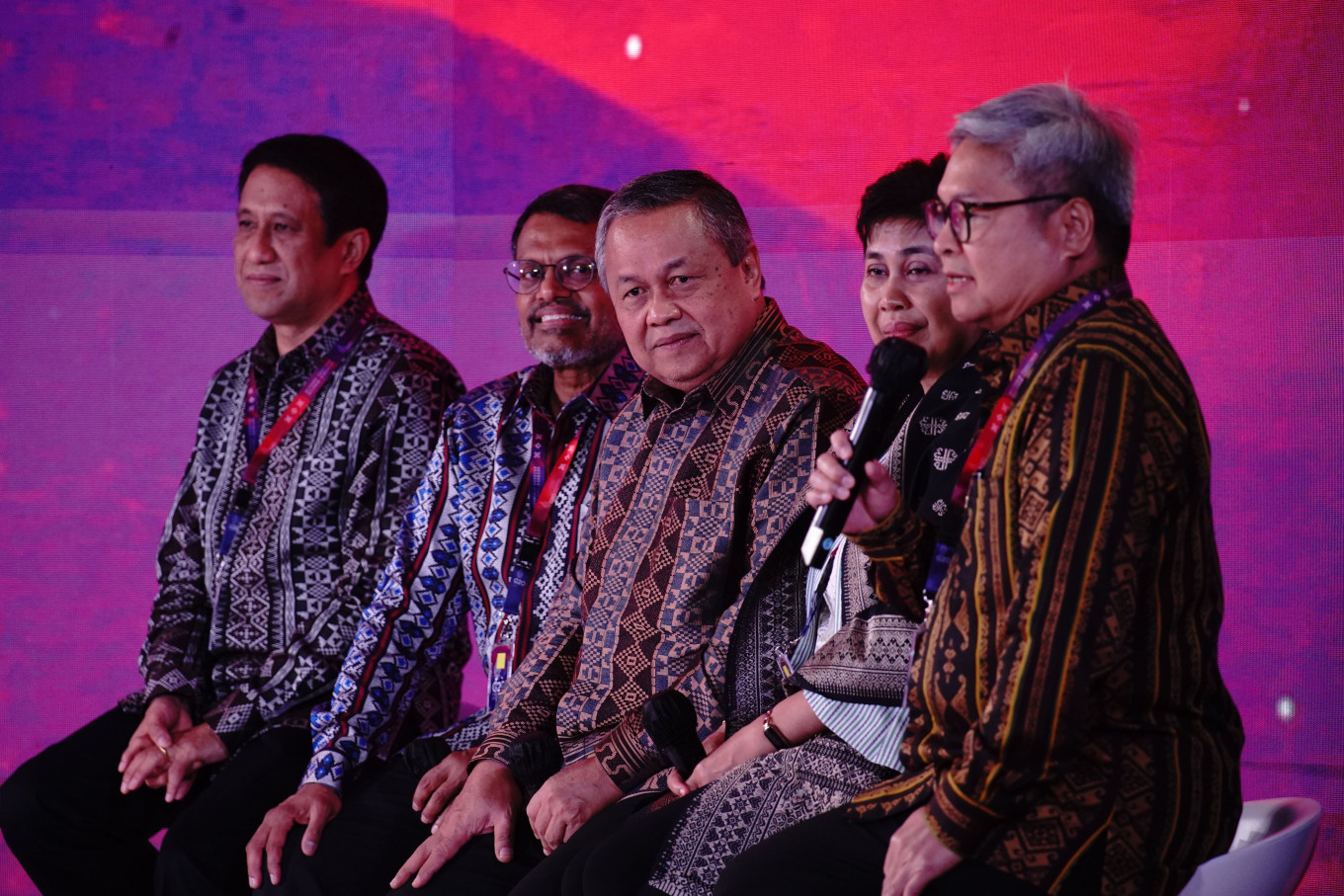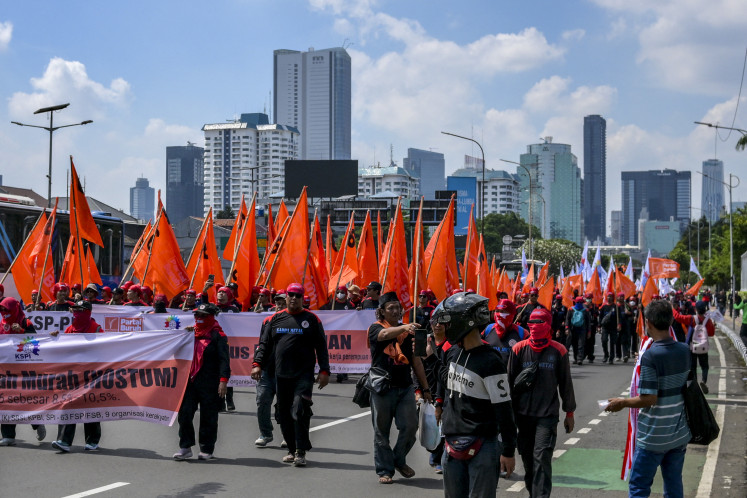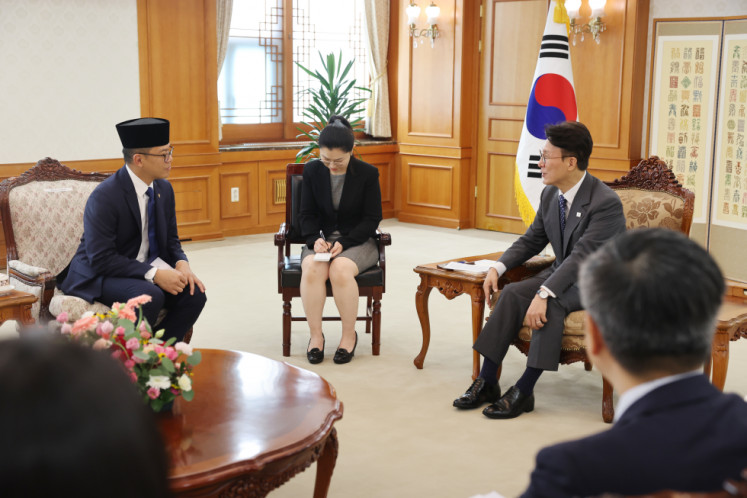Popular Reads
Top Results
Can't find what you're looking for?
View all search resultsPopular Reads
Top Results
Can't find what you're looking for?
View all search resultsFive ASEAN states scale up payment connectivity
Change text size
Gift Premium Articles
to Anyone
C
entral banks from five ASEAN member states have inked a memorandum of understanding (MoU) on regional cross-border payments between countries, in a move that will bring multiplier effects to people and businesses within the region.
The agreement, signed in Bali on Monday, involves Bank Indonesia (BI), Bank Negara Malaysia (BNM), Bangko Sentral ng Pilipinas (BSP), Monetary Authority of Singapore (MAS) and Bank of Thailand (BOT).
The cooperation will allow the use of QR codes to facilitate transactions among five ASEAN countries, an innovation previously only available between Indonesia and Thailand.
It will also expedite the process time of transactions between countries to almost-instant or near-real time, a drastic cut from previously taking between two and three days, or sometimes more.
Furthermore, the agreement enables the settling of bilateral transaction by using the local currency prevailing in each country, lowering the cost incurred from the need to convert the figure into US dollars beforehand.
“Today we are just signing the commitment to move forward digital payment connectivity with ASEAN from bilateral into multilateral,” BI Governor Perry Warjiyo said, adding that they also cover future partnerships on a wholesale level and central bank digital currency (CBDC).
Read also: Efficient cross-border payment system can be boon to migrant workers, recovery
Central-bank governors and deputies in the ceremony agreed that the cooperation would greatly benefit businesses, especially micro-, small and medium enterprises (MSMEs) as well as the people, such as migrant workers and travelers in each country.
They expect the integrated-payment system to greatly boost the flow of trade, investment, tourism and innovation among the five countries.
Five ASEAN members signing the agreement contain more than 70 percent of the total ASEAN population and make up the large majority of the economy in the region.
Mamerto E. Tangonan, deputy governor of Philippines’ central bank the Bangko Sentral ng Pilipinas, said the collaboration would bring a lot of benefits to businesses, as they now could have access to wider markets in ASEAN five countries.
People visiting each other’s countries can now also purchase goods and services much more easily, as they now only need to bring their mobile phones to make the payment.
“And of course -- the tourism industry. It makes it convenient for the ASEAN five-member citizens of the ASEAN five branches to travel and visit each other,” Tangonan said.
Ravi Menon, managing director of the Monetary Authority of Singapore (MAS) said that people in each country can now send money to each other’s bank accounts or e-wallets at a much cheaper price, securely and quickly, as the five countries now have similar systems.
“I think the possibilities ahead are endless, once you have a very good payments’ connectivity among the ASEAN,” Menon said.
Nor Shamsiah Mohd Yunus, governor of the Central Bank of Malaysia, said on the signing that scaling up the connectivity multilaterally has allowed them to save quite a lot compared to doing the process bilaterally, which would, moreover, be time-consuming.
Read also: Global tension hinders recovery, govt, businesses tell world at G20
Vincent Iswara, treasurer at Indonesian Payment System Association (ASPI), hailed the agreement, as it paves the way for the industry to improve their connectivity, especially regarding cross-border transactions.
“It's really amazing that the regulators are building the infrastructure for the industry players, who can actually leverage it, and that there’s no need for us to really get connected to each country by ourselves,” Vincent said, in response to the signing.
Tessa Wijaya, chief operating officer and co-founder of Xendit, added that industry players are excited to work together and further grow in the ecosystem.
The signing came ahead of the Group of 20 Summit on Nov. 15-16, which Indonesia described as one of its concrete deliverables in the main agenda of digital transformation and on the cross-border payments from a financial perspective.
President Joko “Jokowi” Widodo urged central banks in the region to step up the cooperation further from the region, which he believed could also connect payment systems on a global level.










